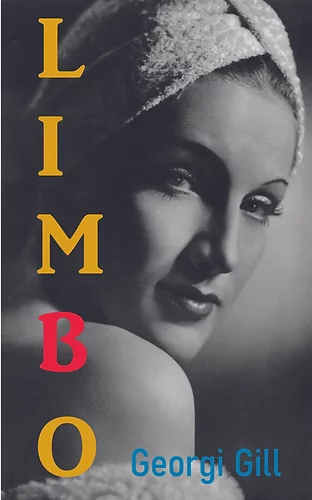Limbo
Georgi Gill
(Blue Diode Press, 2021); pbk, £10
Limbo is a poetry collection by Georgi Gill, doctoral researcher in Health in Social Sciences at Edinburgh University and the inaugural Poet-in Residence at the Anatomical Museum of the University of Edinburgh. She is the editor of the web-based poetry journal, ‘The Interpreter’s House’. She states on her web site that she enjoys blending poetry with fiction and the structure of this collection certainly confirms that.
The eponymous Limbo is a fictional Gay nightclub in early 1930s Berlin and the action is set shortly after the Nazis have come into power. The poems cover consecutive 10 days from Wednesday 3 May 1933, contributing to a narrative around the patrons of the club and their backgrounds, and charting the Nazi clampdown on liberal attitudes and sexual freedoms. The first poem in the collection, ‘Into Limbo’, sets the scene.
The best places are never in the best part of town,
the best places will always be shut down in crackdowns
by the police, the party, the state, until we are left
with the shabby, the hit and miss, the hit and run, the best
of the not quite worst…[.]
‘B’, the main protagonist, is a hermaphrodite who is being examined at the Institut fur Sexualwissenschaft (Institute for Sexual Science). The Institut was an actual centre for sexual health set up during the Weimar Republic which came under the scrutiny of the Nazi party.
Each poem is short; nearly all are under 40 lines. The language begins as luxuriant, exotic and subversive, but as Fuchs, a Nazi spy, closes in on B and her compatriots, it becomes edgy, creating an atmosphere of tension. In ‘Fuchs, Limbo, 11.52pm’, he brags about touching B’s skin, uninvited.
… I cannot resist a lick of my fingers,
a trail across flesh and lace, lace and flesh,
soft, rough, rough, soft to my fingertips,
a whisper of a touch, just enough to surprise,
to disarm, to alarm.
… My fingers
still tingle from the contact, from the certainty
that they belong to the upper hand.
In the poem ‘Lorenz’, the MC at Limbo, appears in drag to welcome the patrons of the club. He might be someone who brought B to the relative safety of Limbo and later, on the 10th day, he helps B to ‘disappear’.
Laura, the hat-check girl at the club is part-time prostitute with a drug habit; a ‘Half-silk’, as such women were nicknamed. She appears in several of the poems with bruises inflicted by violent ‘customers’. In one poem, B tenderly applies make-up to hide a bruise on Laura’s face. She attempts to find solace by comparing herself to other women in full-time prostitution known as ‘grasshoppers’, who perform oral sex on men who frequented the Tiergarten, a red-light district in Berlin.
Lit well, the world won’t notice the black eye,
the choker of fingerprint bruises –
calling cards from the punters.
They won’t see the punctures
dotting her arms, won’t see beyond
the promise of a brief good time[.]
As the Nazi presence threatens, staff at the Institut burn patients’ records and the Professor who runs the Institut escapes in a van, hidden under a load of old surgical gowns.
After the closure of the Institut, it is obvious to the patrons of Limbo that the club will close and that they need to plan their escape. B manages to acquire a fake (male) passport and aided by Lorenz, leaves Germany for safety. In the final poem of the collection, ‘The Border’, B is on a train heading West.
Legs wide, elbows sharp, I claim
Both armrests and unfurl to fill my seat,
Expand to fit my passport.
West, west, west. The conductor, damp
and chilled by station stops, stamps
through the carriage, stops, huffs,
clips my ticket. Moves on.
With Limbo, Georgi Gill establishes herself as an exemplary poet and storyteller for historically marginalised people, overlooked by mainstream society in history.
Jenny Gorrod


Leave a Reply